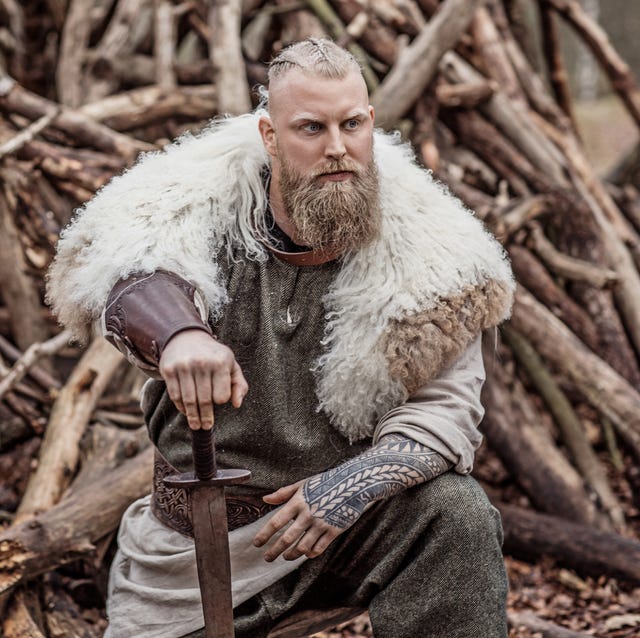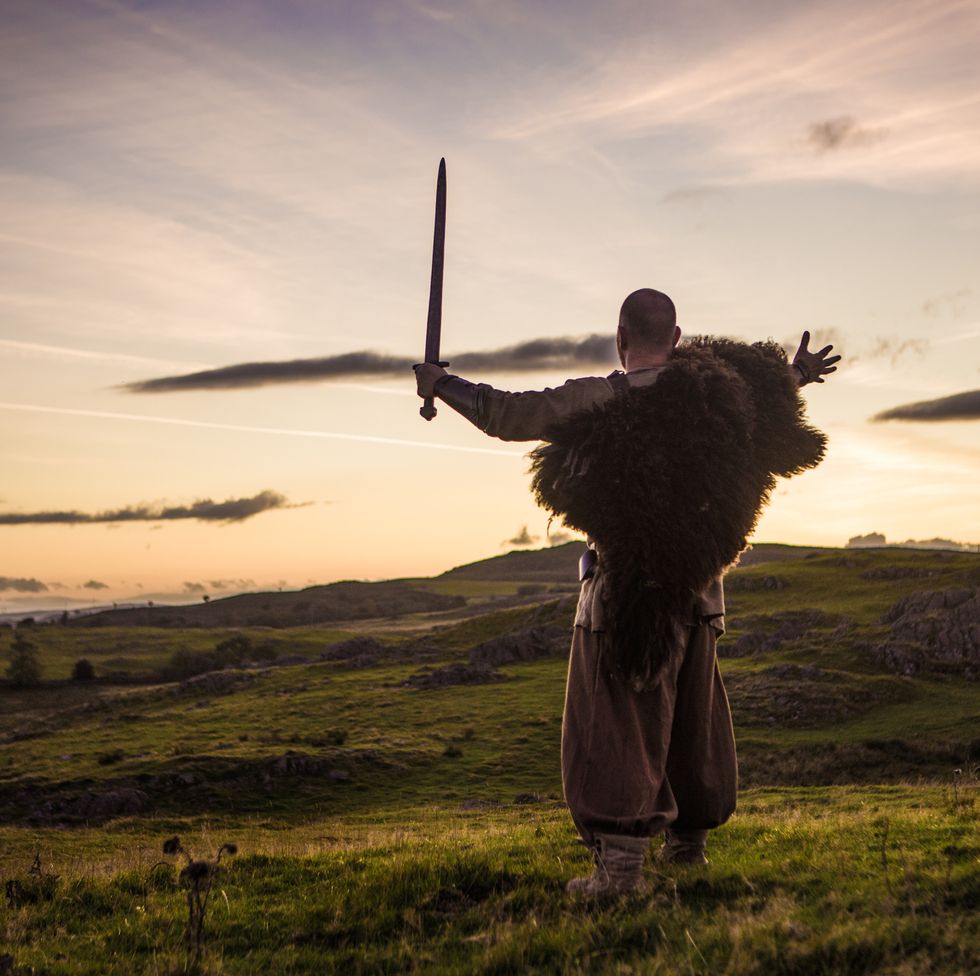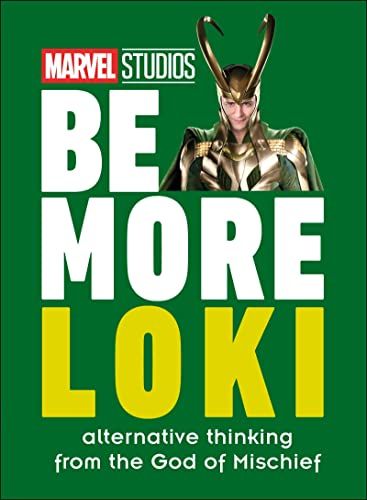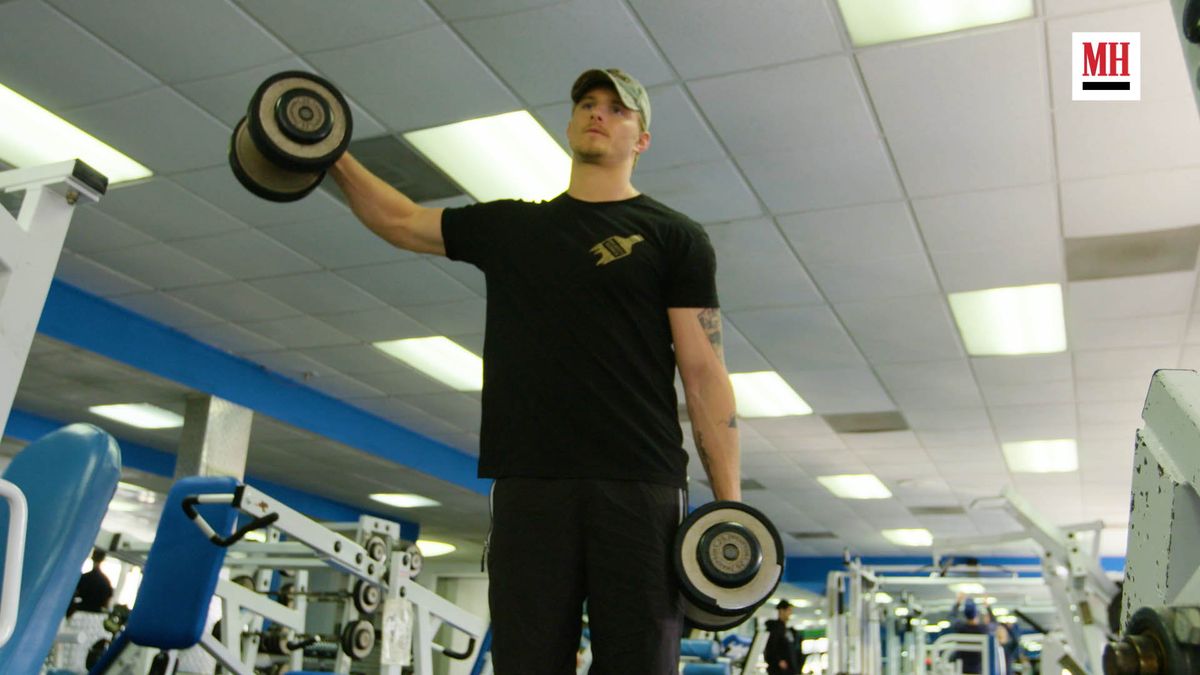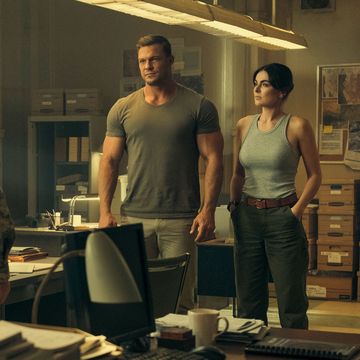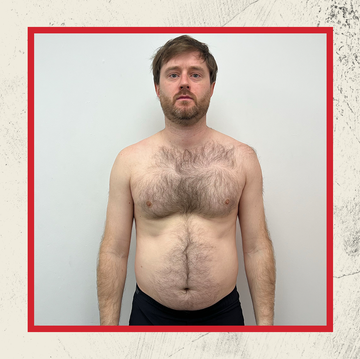THE VIKINGS are coming!
On April 22, specifically, when The Northman hits theaters. And from the looks of it, the film may be the Viking-est movie ever. There’s vengeance! There’s wrath! There’s a Skarsgård!
But as you likely know, it’s too late to light your warning beacons, because the Viking invasion is already here.
Starting in 2013, there have been six seasons of Vikings on the History Channel, not to be confused with Vikings: Valhalla, on Netflix now, which you might mix up with Assassin’s Creed Valhalla, a 2020 video game. The Northman will feature a Viking prince on a bloody quest to avenge his father’s death. And let us not forget Thor and Loki, both Viking deities, who have been wowing us since their Marvel—movie debut in 2011. So why are we still so infatuated with a culture that dates back to the late eighth century?
I credit Norse cosmology, which described everything in existence branching out from a great tree called Yggdrasil; funerals that entailed being shoved out into the sea in a blazing boat; and a fun-loving, heavenlike setup dubbed Valhalla, which was basically one big pub. There’s a simplicity to Viking life—and glory in its afterlife.
Yes, day-to-day life as a Viking was arduous—but in a way we now see as glamorous. Vikings are tooth-spitting, battle-scarred brutes who slashed out their issues instead of hashing them out over email. Revenge was revered. Thor best epitomizes this glorious way of living. He’s fearless, strong-willed, and all-powerful. He sees the world in black and white, good and evil, honor and treachery.
We are attracted to Vikings now, perhaps more than ever, because they came from a more understandable world. Except that in our yearning for a simpler, more “manly” era (whatever that word means anymore), much of what we admire about Viking culture is a cheesy theme-park parody.
Vikings didn’t wear horned helmets into battle—that’s about as practical as a superhero wearing a cloak. Only the greatest had a flaming longship funeral. Ships cost money. And as acclaimed as the Vikings were in war, they eventually laid down their weapons to become more domesticated Europeans.
I’m not convinced that all this fixating on Vikings is actually good for us. At the very least, Vikings aren’t a flattering reflection of who we are as men. At worst, Vikings represent a template for a smash-each-other-to-pieces, rape-and-pillage, avenge-at-all-costs mentality. And surely we can all breathe a sigh of relief that we have well and truly put that way of life behind us.
Buying into myth is one thing if it’s for entertainment (and The Northman will be one hell of a longship ride). But if you revere—or, much worse, act out—Viking deeds because of their cut-and-dried approach to masculinity, that’s a bit like aspiring to be the Tooth Fairy—a tradition that may also be rooted deep in Norse tradition.
A version of this article originally appeared in the April 2022 issue of Men's Health.
